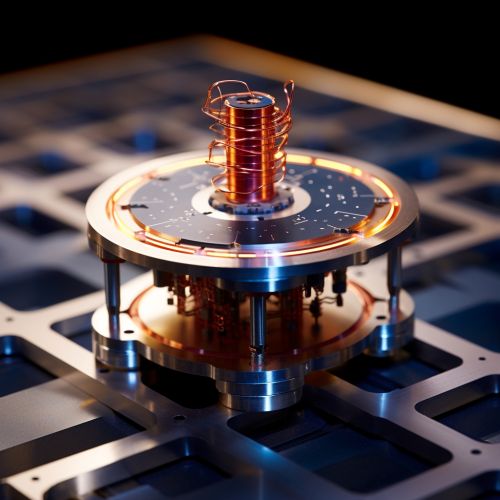Quantum Coherence in Superconducting Qubits
Introduction
Quantum coherence in superconducting qubits is a fundamental concept in quantum computing. It refers to the ability of a quantum system to maintain a superposition of states, which is crucial for the operation of quantum computers. The coherence time of a superconducting qubit, which is the time during which the system can maintain this superposition, is a key parameter in the design and operation of quantum computers.


Quantum Coherence
Quantum coherence is a fundamental property of quantum systems that distinguishes them from classical systems. In a coherent quantum system, the phases of the wave functions that describe the system's states are correlated. This allows the system to exist in a superposition of states, which is a combination of multiple states at the same time. This superposition is a key feature of quantum mechanics and is what enables quantum computers to perform complex calculations much faster than classical computers.
Superconducting Qubits
Superconducting qubits are a type of artificial atom used in quantum computing. They are made from superconducting materials, which have zero electrical resistance when cooled to very low temperatures. Superconducting qubits can exist in a superposition of states, which is maintained by quantum coherence. There are several types of superconducting qubits, including charge qubits, flux qubits, and phase qubits, each with their own properties and advantages.
Quantum Coherence in Superconducting Qubits
Quantum coherence in superconducting qubits is crucial for the operation of quantum computers. The coherence time of a superconducting qubit is the time during which the system can maintain a superposition of states. This time is limited by various factors, including the quality of the superconducting materials, the design of the qubit, and the presence of external noise.
The coherence time of superconducting qubits has been steadily increasing over the years, thanks to improvements in materials and designs. However, it is still a major challenge to maintain quantum coherence for long periods of time, which is necessary for the operation of large-scale quantum computers.
Maintaining Quantum Coherence
Maintaining quantum coherence in superconducting qubits is a major challenge in quantum computing. Various techniques are used to extend the coherence time of superconducting qubits, including the use of high-quality superconducting materials, careful design of the qubit and the surrounding circuitry, and the use of error correction techniques.
One of the main sources of decoherence in superconducting qubits is the interaction with the environment, which can cause the qubit to lose its superposition of states. This interaction can be minimized by isolating the qubit from the environment, for example by cooling the system to very low temperatures.
Future Directions
The field of quantum coherence in superconducting qubits is a rapidly evolving area of research. Future directions include the development of new materials and designs to extend the coherence time of superconducting qubits, as well as the development of new error correction techniques to maintain quantum coherence in large-scale quantum computers.
